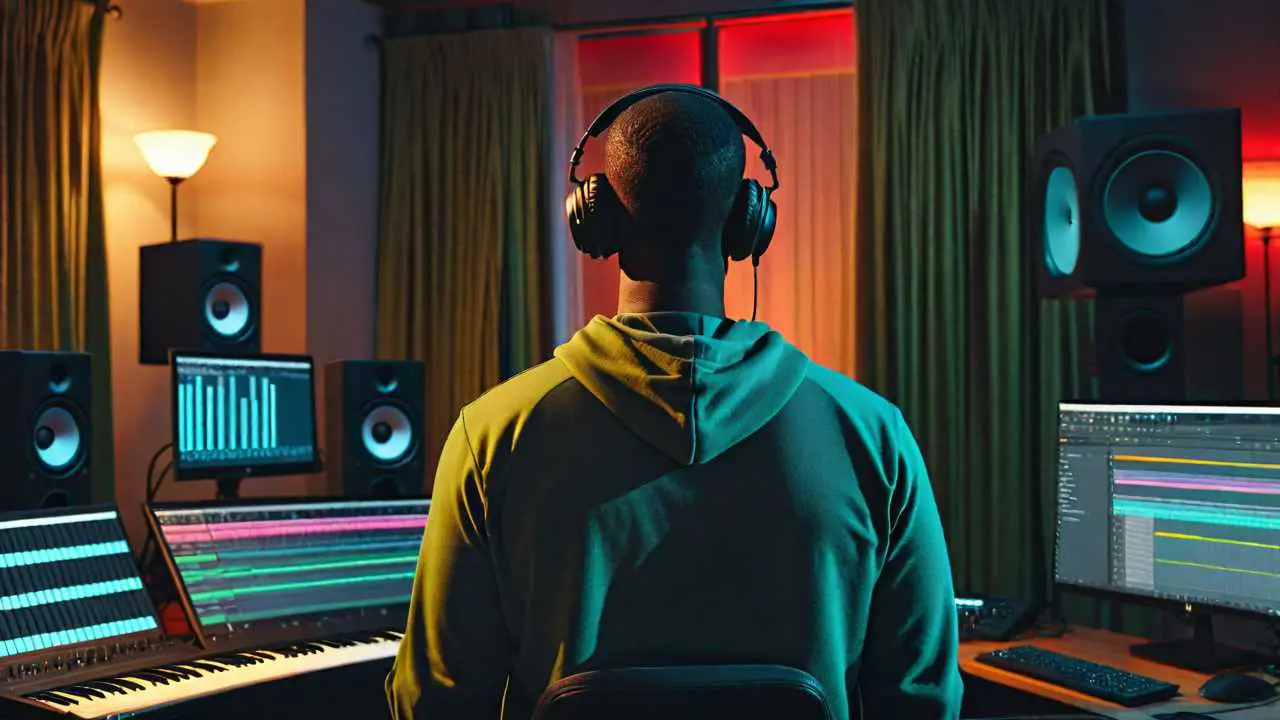Entertainment
What Software Do Independent Musicians Use for Production?

You might be surprised to learn that independent musicians today have a vast array of software options at their fingertips to bring their musical visions to life. From cutting-edge digital audio workstations like Ableton Live and Logic Pro X to a myriad of virtual instruments and effects plugins, the tools available can transform your home studio into a professional production powerhouse. But what specific software do these artists turn to when crafting their unique sounds and compositions? Let’s uncover the industry secrets behind the software choices of independent musicians and how these tools shape their creative process.
Essential Digital Audio Workstations (DAWs)
When crafting music as an independent musician, choosing the right digital audio workstation (DAW) can significantly impact your workflow and the quality of your productions. Your selection of DAW is like selecting the perfect instrument; it should resonate with your creative process.
Popular options like Ableton Live, Logic Pro X, and FL Studio offer unique features tailored to different styles. Ableton Live’s intuitive interface and powerful session view make it ideal for electronic music producers seeking a live performance feel.
Logic Pro X, with its extensive virtual instrument library and professional mixing tools, is favored by many for its all-in-one capabilities. FL Studio’s pattern-based workflow is excellent for beat makers looking to create catchy rhythms quickly.
Investigate these options, experiment with demos, and see which one clicks best with your musical vision. Remember, the right DAW isn’t just a tool but a creative partner in your artistic journey.
Top Virtual Instruments for Creativity
Discover a variety of virtual instruments to boost your creativity as an independent musician. Immerse yourself in the world of virtual instruments to enhance your music production game.
Start with Native Instruments Komplete, a powerhouse package offering a vast array of sounds from synths like Massive X to realistic sampled instruments like Kontakt. For lush orchestral arrangements, consider EastWest Composer Cloud, granting access to top-tier orchestral libraries.
To add unique textures and ambience, engage with Output’s Exhale for vocal manipulation or Spectrasonics Omnisphere for ethereal pads and textures. For electronic music enthusiasts, Serum by Xfer Records is a staple for cutting-edge sound design and synthesis.
Impact your beats with addictive drums like XLN Audio Addictive Drums 2 or lay down grooves with Toontrack Superior Drummer 3. Discover Arturia V Collection for vintage synth emulations or U-He Diva for analog warmth.
Embrace these virtual instruments to unleash your sonic potential and enrich your musical journey.
Must-Have Effects Plugins for Mixing
Improve your mixing skills with these essential effects plugins that will take your sound to the next level.
Start with a versatile compressor like Waves SSL G-Master Buss Compressor, known for its ability to bind tracks together.
For adding warmth and saturation, consider Soundtoys Decapitator, a go-to choice among producers for its analog-style distortion.
To enrich spatial depth, try Valhalla Room reverb plugin, offering lush, dynamic reverbs that breathe life into your mixes.
Don’t forget about FabFilter Pro-Q 3 for precise EQ adjustments, allowing you to sculpt your frequencies with surgical precision.
Need to add movement and excitement? Explore Cableguys ShaperBox, a powerhouse for creating rhythmic effects and modulations.
Lastly, complete your collection with iZotope Ozone 9, a comprehensive mastering suite that polishes your tracks to a professional sheen.
With these must-have effects plugins in your arsenal, your mixes are guaranteed to sound polished, professional, and ready to engage your audience.
Collaborative Tools for Remote Production
Improve your remote production workflow with collaborative tools designed to streamline communication and creativity among team members.
Utilize platforms like Splice, which allows for seamless sharing and editing of project files in real-time. With features like version control and commenting, you can easily track changes and provide feedback to your collaborators.
Another excellent tool is Soundtrap, offering a cloud-based recording studio where multiple users can work on a project simultaneously. Its intuitive interface and built-in chat functionality make it easy to communicate and brainstorm ideas with your team.
For those looking to sync video along with audio, JamKazam provides low-latency audio streaming, perfect for live remote jam sessions.
Additionally, services like Zoom and Slack can optimize communication and project management, ensuring everyone stays connected and organized throughout the production process.
Frequently Asked Questions
How Do Independent Musicians Handle Licensing and Royalties for Their Music?
To manage licensing and royalties as an indie musician, you must navigate platforms like SoundExchange and ASCAP, ensuring proper registration and tracking of your music. Stay informed about rights, agreements, and royalties to protect your work.
What Are the Best Practices for Promoting Music on Social Media Platforms?
To promote your music effectively on social media platforms, engage with your audience authentically, create visually compelling content, utilize targeted ads, collaborate with influencers, and harness analytics to refine your strategy for maximum impact.
How Can Independent Musicians Secure Opportunities for Live Performances and Gigs?
To secure live performance opportunities, network actively within your local music scene, reach out to venues directly, showcase your unique sound, and create a professional press kit. Engaging with fans and building a strong online presence can also attract gig offers.
Are There Resources Available for Independent Musicians to Learn About Music Marketing and Branding?
To learn about music marketing and branding, delve into online courses, webinars, and industry blogs. Engage with fellow musicians, seek mentorship, and experiment with promoting your music on social media. Embrace creativity and authenticity in building your brand.
What Are the Key Differences Between Self-Releasing Music and Working With a Record Label?
Exploring the music industry is like choosing between a bustling city street or a quiet forest path. Self-releasing gives you autonomy, creative control, and direct profits, while a record label offers resources, promotion, and industry connections.

Hello there! I’m Jeremy Ramirez, your go-to guy for all things content marketing and social media at NewsScroller. Currently residing in the vibrant city of Omaha, NE, I’m living my dream of combining my passion for journalism with the dynamic world of digital media.
I’m a proud graduate of the University of Nebraska, where I honed my skills and earned a degree in journalism. My college days were filled with endless learning, coffee-fueled study sessions, and the excitement of discovering the power of storytelling.
Post-graduation, I found my calling at NewsScroller, where I currently lead a team of creative minds in shaping compelling content strategies. Every day is a new adventure here – crafting stories, analyzing trends, and engaging with our vibrant online community.
When I’m not immersed in the digital world, you’ll find me cherishing moments with my amazing wife and our two energetic boys. Our family is completed by Dagwood, our adorable Pug, who always brings smiles to our faces.
Traveling is my escape and inspiration. I love exploring new cultures, tasting local cuisines, and capturing memories through my lens. As a speaker at social media events, I enjoy sharing insights and learning from fellow enthusiasts.
Curious about content marketing strategies or the latest social media trends? Or maybe you want to exchange travel stories? Feel free to reach out. I’m always up for a chat and eager to connect with like-minded individuals. Let’s navigate the exciting world of digital media together!
Want to know more or say hi? Drop me a message anytime!

